|
In which the writer marks her first year back in Berlin with a foray into the colliding worlds of myth and reality, I celebrated completing my first year back in Berlin this week, marked the occasion with a remote call with the two friends – Ben and Alice - who had felt most like 'family' in Hong Kong –beleaguered but kindhearted journalists from my old newspaper who also happen to be some of the wittiest and most cynical people I’ve ever met. I gave them a tour of my new place, an eerily charming and quite expansive space with creaking floorboards that I discovered via the city’s journalism circuit. Here, chandeliers hang from high ceilings, an 150-year-old ‘atmospheric’ sounding piano complete with candle-holders stands next to a full-blown walk-in bar of dark wood and faux-gold furnishing and a beer tap that appears to only serve aesthetic purposes, as black-and-white illustrations and maps showcasing the Berlin of yesteryear abound. A panel of blood-red wallpaper completes the look. Lighting is quite low, so many of my evenings are accompanied by the glow of candlelight, placed next to the large, fat-stemmed and rather mysterious purple and white flowers I bought. I've left their fallen petals to wilt. A luxurious enough experience can be had lounging on the baroque-style, sheepskin-rug-bedecked sofa overlooking the hinterhof complete with trees that now sulk with their forlorn and jagged winter nudity, though the highlight of the space can be found in my bedroom, which is certainly more regal than any I’ve ever occupied and which overlooks a rather quaint graveyard. In self-help books we’re told to create a visual image of who we most desire ourselves to be. I’ve always had this picture of myself, feet propped up at a vast and powerful-looking desk complete with pillars of of books and papers, with a cigar in hand. This desk here comes close to that visual, though it’s of a rather grim and haunting dark wood that exudes undead vibes. “You’re renting from Dracula, aren’t you, Sarah?,” Ben says. I wouldn’t say Dracula so much as I feel like this place resonates more on a Huysman level. Huysman’s book Against Nature (À rebours) was one of my favourites at university, a recommendation from a tutor who always knew exactly what I needed to read, a rare talent that never goes amiss. Looking it up now, I find a version of an early translation in which its first page opens with the subtitle "A Novel without a Plot". Brilliant. Novels without plots, plots without novels Against Nature (described in on review I read as “one of the strangest books ever”) follows the eccentric Jean des Esseintes– the last scion of an aristocratic family– as he shuffles wearily around in a robe rarely leaving his luxurious but somewhat haunting home bemoaning the modernity and chaos of the outside world, entertaining himself with classical French and Latin literature of specific eras (the only good ones, he insists) and the companionship of a tortoise who he inadvertently kills when he sticks jewels onto its shell. As students of literature we are taught to think about the messages characters have for us in the present day. The book was written in 1884, and des Esseintes is presented as a relic of a bygone time, having retreated completely into a world of fiction he believes far suits a person of his lineage in an age of social and technological upheaval. (In 1895, by way of example, the Lumière brothers — pioneers of film — produced a short movie of a steam train roaring down a railroad, which marked the onset of the moving image, to name one major development that brought about the rise of mass culture). Des Esseintes is an interesting character to think about for a number of reasons, not least that if he lived today and had assess to Wifi, I can see him as one of those anonymous internet troll decrying all sorts of things in a last ditch effort to maintain a semblance of relevance ('to feel heard') In a world in which he can't keep up. (#notallaristocraticscions) The character also has a rare and specific "decadent" illness not without overtones of vampirism (a spectre that best symbolises these old-world/new-world clashes and fears that Decadent literature so evocatively explored). He is sickly and prone to sensory oversensitivity such that, in fact, books, books more books accompanied by the strange orientalist gongs of the so-called "East" that he has farmed in from worlds he has never seen (Said eat your heart out)– suffice in sustaining his creativity and enjoyment of life such that he never need step outside, nor seek companionship at all). Some people seem to think the onset of new technologies like AR and VR will turn us all into Des Esseintes. I am not ruling out the possibility. But it should be said that humanity has been inoculating itself against the realties of the world through fiction for millennia. We've always had access to that form of escape – the more shrewd humans among us have always found ways around the mythological noises that take us off course from the truth, however enchanting (and in many cases, rewarding) these meanders might be. A globetrotting granny Sometimes when I think about Des Esseintes and the question of fiction as escape (versus fiction as freedom), I think about my grandmother, a singular and cerebral working class woman who decided quite early on that the likelihood of finding a man who would show her the world she dreamed of seeing was quite slim in sleepy Tunbridge Wells. So in lieu of the pursuit of a husband she taught herself five languages and worked as a secretary in a multinational organisation. She met my grandfather while she was working in Vienna. Her marriage to the Hungarian Calvinist of Transylvanian roots was short. Some years later, she had an affair in what is now the Republic of Congo, but if I am correct spent her longest stint in the city that agreed most with her besides London: Paris. This is why I have a half-Malaysian half-uncle with a Hungarian surname who speaks French like a Parisian. If there was one thing that charmed my grandmother more than travel and the promise of new worlds, it was the world of ballet. All she wanted to do in her retirement was attend every dance institute in the area. She was probably a patron of more than she could afford, might have single-handedly kept many open. She lived for these fictional worlds, they sustained her in a way the real world couldn't. Conversations over the phone always centred around that season's theatre and dance programmes, and I was supplied with more novels from her while I was growing up than I knew what to do with. Of course she was the person who gave me my two favourite books from childhood: Little Women, and Chinese Cinderella – the latter being the work that sparked my own dream of globetrotting adventures I eventually realised (an event in which myth collided quite rudely with reality). Prone to falls and incidents one assumes come hand-in-hand with being rater bookish and otherworldly (as opposed to robust, coordinated and grounded), my grandmother approaches her 90s with a surprising lucidity and promising bill of health, despite having always been too "something or other" for this world. Smart, maybe? This said, she has recently moved into an old people's home, a confronting experience which has inspired some of degree of myth-making on her part. "These women are all prostitutes or lesbians!" she has said on one of those days she has in which her grip on reality is less strong. But anyway, back to Against Nature. I love the symbolism and the haunting hopelessness of the work, it's so eerie and meandering and mystical, captures the sort of total retreat into introspective god-knows-what-world that can happen to some circles during times of seismic change. That poor tortoise. To hammer down my point: In the words of my best friend from school, Ceyda: “I hate Trump because he totally took the fun out of conspiracy theories”. It's true. The fun has been taken out of myth-making and risky meanders from the truth. Our other school friend, an artist-turned-social worker specialising in drug addiction –who is my best source for understanding London's increasingly worrying crystal meth scene, (alongside the best confidante I've ever had), no longer sends me bizarre articles about airports designed by the illuminati from 'Vigilant Citizen,' the website that also inspired some of her weirdest illustrations. Our WhatsApp group is still riddled with snapshots of Occultish dolls and Victorian taxidermy fails, though. She most recently reports a great time to have been had at her virtual 'Moon circle' retreats, an activity she squeezes in between virtual gong baths and sobering phone calls with clients from all walks of life, and phone calls with me. Last month, when I was struggling with a greater degree of emotional disturbance than felt manageable at the time, I spoke to her about wanting some kind of emotional vasectomy, something that could efficiently remove these feelings from me so I wouldn't have to bother with them. "We all want that sometimes, Sarah. That's literally why people take drugs," she said. To return to our main event But, actually, my understanding is that, the previous tenant here was not Dracula, nor an aristocratic scion-turned-nutty-mystic, but a rather jolly German man who, according to neighbours, was prone to noisy, convivial late-night antics. “You mean sex parties?” Ben queries. Possibly, who knows about the stories that came here before mine. “I’d love to see you at a sex party,” Ben adds. “Standing politely in the corner saying stuff like ‘how nice it is we all get to spend time together like this.” The neighbourhood is quite different from the one I recently left. On my evening walks, which have now transformed into evening runs –the time of my day in which I feel most alive during these bizarre soon-to-be-mythologised, socially-rupturing lockdown times, – I am far more likely to bump into a drunk than a pram-wheeling lady holding a chia seed smoothie. One practise that continues here, as it did in Prenzlauer ‘pregnant lady’ Berg is that of people leaving items out for scavengers such as myself to root through. I’ve always enjoyed accumulating other people’s things, especially when their story is mine to try and interrogate, bring to life somehow, create fictions in the between spaces of their cracked realities. I now own a scratched gold watch, a flamingo figurine, a pink teacup and a forlorn and slightly ripped photo of someone’s dog, among many other decaying oddities. I’m not sure what to do with any of it but I am glad they are here in this, in this hall of dark, enchanting and zany things during these strange, long months –ready to recycle themselves out of their oblivion into some new story, a decadent meander between fiction and truth. Yours, Vlad the Impaler x. p.s. New (O.K, recently rediscovered #content uploaded elsewhere)
0 Comments
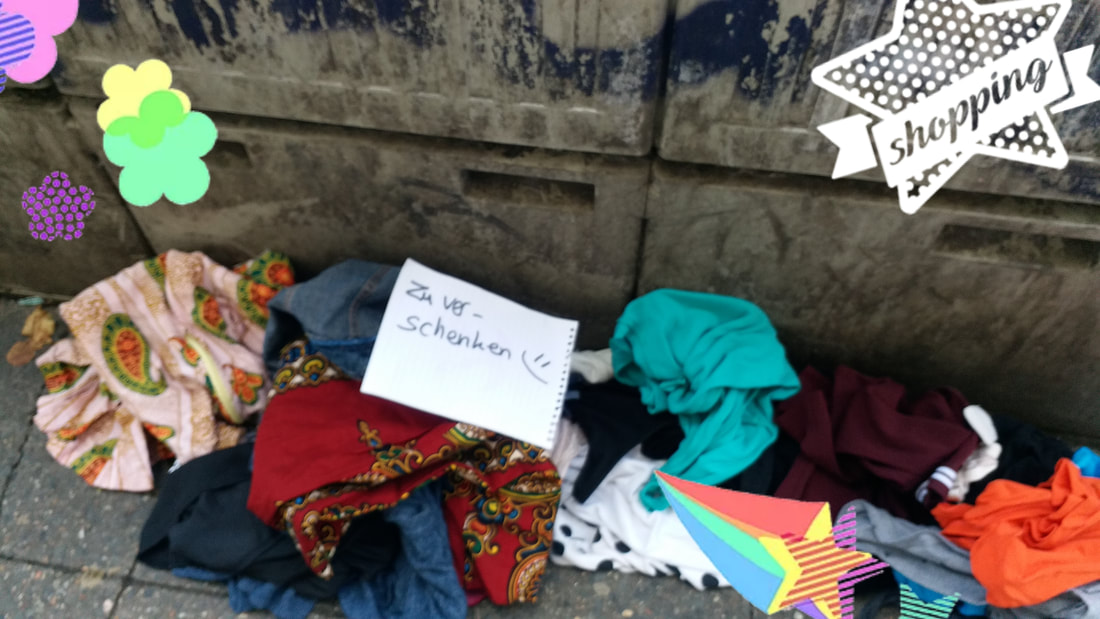 Just off Hermannstrasse, Neukölln Just off Hermannstrasse, Neukölln In which the writer has her work critiqued and as a result offers her reader a greater deal of context. I have recently shared one of these posts with a writing partner whose feedback was as follows: “It’s the rambles of an ‘impossible’ narrator who provides no context.” I suppose there is some truth here. An editor once made a similar remark about my writing: “It takes you awhile to get to the point.” He echoed much of what I heard growing up, trained under the maxim that everything worth saying can be whittled down to a headline, and that all headlines that stretched beyond two lines were a disgrace. That everything halfway from here to there says nothing at all. There was news. And there was dross. And then, there was the perfect headline. Why could I never write the perfect headline? Why do I still struggle in writing the perfect headline? It’s never quite there. It’s always short of that one word that I can’t access, that’s sitting just on the tip of my tongue. Somehow that perfect New York Times-esque balance between punch and elegance eludes me. There was news, and there was dross. I edited myself accordingly. Kept quiet the places I did not know. Listened for a clarity that never came. Now I wonder whether these meanders into nowhere and everywhere are my own rebellion. But here: some context: When I began these posts I pitched myself to my invisible audience as a so-called “third/culture/kid” having returned after years of timeawayness as a journalish-daughter-of-a-journalist relocating to a city I once knew fromchildhood. Along the way I have described the ethical quandaries, the pain and relief of leaving Hong Kong during its depressingly historic moment, I have gone into the various emotional and intellectual quagmires of my trade, and I have also taken little forays into the world of MMA that had served as a much-needed escape and which helped me learn to embrace parts of myself buried deep underneath all this excessive thinking and analyzing and worrying, and this unshakable, maladaptive perfectionism that always burns me out. On the mat, I don’t have to be perfect. I just have to be game. “Stop thinking about what you can’t do, start thinking about what you can,” my first coach used to say. Through this time, in which I went from staring bleakly out of windows, and partaking in my favourite pastime, that is, walking wherever my feet take me, new responsibilities came my way, not least a fellowship inviting me explore Europe’s shifting media landscape, and so have various shifts within me taken place. I can’t say I myself have achieved a sense of belonging here (I am doubtful as to whether that would happen anywhere). But I believe I have found my feet. And I am getting a little bit closer to achieving one thing I set out to do: Be imperceptibly foreign when I open my mouth. Last week, someone mistook me for a Bavarian. I consider this progress. More context: I would pretend that I had bold plans for this little, aimless project of mine. But really it was to help keep my fingers busy and my mind active through Corona, and because writing is always what I do when I need to figure things out, and returning to Europe after all these years away has been one of the strangest, most necessary things I’ve had to do. Bounding into the unknown has always come far easier to me than homecomings. There is your context, kind, invisible reader. Oh, to explain another point: I have entered into the habit of beginning each entry by describing the view outside my window: A warm up for my fingertips that reminds me of an early premise made here: That a change in perspective might resolve certain feelings of restlessness in looking at something that seemingly remains the same. I observed seasonal shifts from my window, tried to interrogate my view in a way that would prevent me from growing bored of it.
But I also cheated in this exercise. I have moved twice now since I began this blog, and I still can’t escape my geographical restlessness, much as I know that staying put, creating routines and a sense of familiarity and attachment, are what I need to do to find the roots that elude me. This new view is so far my favourite. Especially at golden hour, which it is right now. I’m not sure I’d appreciate autumn so much if I hadn’t lived without it for so long. Read more on Sarah's Mixed Martials Arts journey via the links below: 1. Fight Club 2. Lessons from the mat 3. Good and bad algorithms 4. Taming the lizard brain Read her summary of why she fights, and what cultural value MMA brings in her BIO. In which the writer resolves to foster calmness so as to make wiser decisions on and off the mat. It’s late evening again, and I am pulling shards of glass from a mirror I accidentally broke earlier this week off the rug, listening to weekday traffic gliding home, squinting to see a blueish grey sky through a pair of glasses so clouded I really ought to replace them soon. I wonder when I write these things about the extent to which characters besides myself should get their airing. I struggle with this, the personal and the journalistic slipping and sliding between one another. It is an uncomfortable place that I do not like very much and where I try to tread lightly. That I returned to the mat might be evident. A couple of points to note, that I think might be relevant to some of the themes explored here. First off, that film of fear and/or adrenaline I had been carrying onto that, and mats before this one, has evaporated. I bring a calmness to the study of conflicting bodies that has eluded up until now. I think I might owe that to having spent the last months doing very little except staring out of my window and going for long, lost urban walks, in what has been one of the only times in my life in which I haven’t been overwhelmingly productive and buzzing with responsibility. In the absence of excessive cortisol coursing through my veins non-stop, I think with a newfound clarity, and with much greater recall, even in the remit in which I most greatly suck. That is, the physical. For example, I withstand a chokehold quite close to the point at which I know my breathe will no longer hold out (breathe? Nope, it's not about losing breathe, it's about losing blood flow to the brain –Ed:...future Sarah) ). I tap out tactically, not in panic. Fists that used ball up in a panic under the weight of an opponent are slightly less reactive, though the bad habit of clinging to a fabric remains to be rooted out, at least in scenarios in which a Gi is absent. Sometimes, in the heat of it, I remember carefully what I need to do. I no longer just scramble- a strategy that sometimes proffers explosive results, but which is unreliable and ineffective against the strategic, clever fighters who seem to have every eventuality and future outcome mapped out to a tee. I experiment with what I am taught, even if it means moving away from the tried and tested sequence, I use time and again, and never quite complete. By completing, I mean taking mount position, and raining punches down on my opponent. Something I don’t really like to do, if I’m honest. Punching someone in the face a lot while you’re sitting on them just seems so rude. “You’re too nice,” my first coach said a fair few times. I have committed myself to the effort of really trying to retain the physiological data that is passed on to me, about maneuvers and behaviours that are unwise, algorithmic dead ends. I don’t rely so much on brute force to protect myself, and I try finally, truly, to understand the mechanics of submissions, the strategies around how to achieve and escape them. Other important points to note. It feels like I know nothing at all about this sport. I’m not sure what it was I learnt up until now, how much I might have unlearnt, how confusing it all still is, like I’m surrounded by people speaking in tongues, and I’m still not picking anything up. I am hoping, now that the backdrop of my life is considerably calmer, with almost a total absence of menace, I can focus on this learning, on learning to define and negotiate with myself the points at which I carry on, or step off from a particular challenge. I remember one thing my first coach saying about stress. There's a point at which it sharpens. After that, it takes you under. Learning to fight is about negotiating such terms bit by bit to a point where you are making accurate assessments of your own capabilities, your own staying power. It's about learning to make assured assessments that aren't so much based on the spectres you carry around with you that are inspired on whole host of fears and biases - about when you can and can't prevail - but on a reality that is as humbling as it can be empowering. One coach I had for a couple of months, who instructed in wrestling and Brazilian Jiujitsu, said, recognising that what I struggled with most was applying these intricate physical movements to stressful scenarios, that I’d just have to show up for long enough until something clicked. It still hasn’t, but I guess I’ll just carry on being thrown around and choked out until it does. "I am not a nice man, I have been fighting since I was six." I remember him saying to me of his occasional testiness, which didn't really bother me, especially as what lay beneath that felt like a strong sense of justice and honour- and which anyway kind of befitted his branding, that is, a host of photos from the Octagon, blood dripping from his lips and his fist his held high in the air. "I am not very nice. But here, you learn to work under pressure." Another thing he said, about takedowns (the movements statically most responsible for injuries) specifically, was that they actually become more dangerous if you approach them with ambivalence. "You have to commit to your takedown," he'd say. "Or it goes wrong." My first coach told me off countless times for overthinking. I asked him for research materials and he basically just said: "Nope". I always feel better after a class. Lighter somehow. Things feel a little bit more vibrant beyond the mat; I walk down the streets of Berlin with a freshness that feels like you’re 12-years-old, just out of a swimming pool, rubbing chlorine from your eyes, blinking at the midday sun. Things feel pretty, and sharp, and easy, and bright. Everything feels OK. Like worrying about anything is dumb and pointless.
It still surprises me, how much my body can withstand. The intensity of pressure it can endure, the strength and cleverness that lurks somewhere hidden until called upon to act. I think, after years wrestling with, and ultimately finding myself humbled by the limits of my mind, its nice to see, or at least, hope to see, potential expressed elsewhere. Read more on Sarah's Mixed Martials Arts journey via the links below: 1. Fight Club 2. Lessons from the mat 3. Good and bad algorithms 4. Taming the lizard brain Read her summary of why she fights, and what cultural value MMA brings in her BIO. In which the writer describes a wander into her childhood neighbourhood, and muses on the pressures of the modern newsroom, where informational downloads make navigating nebulous spaces -and a sense of living something more than a hypercerebral, hyperfrazzled existence- a challenge. I am breaking with blog tradition and writing at night time. It’s a beautiful evening, finally a bit of rain, the sky has a blueness to it that’s ocean-like, the buildings a hulking blackness broken up by sporadic glowing yellow squares. Streetlights shining against the shadows of leaves refract against my window’s glean; makes the glass look a little bit like it’s peppered with stars from a children’s book. Last week I found myself in my old neighbourhood from childhood, in sleepy Dahlem, broke my rule of not disappearing on companions to see if I could find my way back to my childhood home without checking Google Maps. I overestimated the walk by about an hour and half but found my way in the blistering heat to Bruemmer Strasse 26. Broke into the shared garden to explore. There were weird gnome-like statue things that weren’t there before, but otherwise, it seems like very little has changed at all. The old currywurst stand down the road is still there, even. It was strange being back there, but, after months of spending more time in a state of lost as opposed to found, it was kind of nice to know that something inside me was able to find my way. And, after all these years, the same McDonalds lives in the same place. Almost as if no time has elapsed at all. I’m not sure if the newsagent’s is still there, the one where our family had a standing order of around five newspapers a day; papers which still exist today - none of which have yet folded, which is nice to know. Sometimes, when I’m being good and productive, I’ll buy a weekend edition of one, bring it home, leave it sprawled out on the kitchen table, marking my territory. It’ll rest there for an hour or so until my housemate folds it up and tidies it away, returning our shared space to its barren order. Sometimes, there will be flowers in its place. From my understanding, newspaper mess does not count as mess; it makes somewhere home. Same as how the three beeps that precede BBC’s radio service aren’t so much noise as a daily reminder to be quiet, and to listen to the world. These days, though, my morning rituals are kind of different to how they were some years ago, and what I grew up with. This sounds silly and/or Daoist, but if I’m honest, I like my mind empty in these hours. I don’t want to be thinking about everything big and grand happening everywhere else. I want to be here. In my own skin, in my own body, thinking about simple and unexceptional things like breakfast and whether it’ll rain later and what kind of rain that’ll be. If I was plying my trade in the traditional sense, finding my way daily to the hellishly fantastic quagmire of modern day newsroom, where everyone is at the verge of a nervous breakdown and the coffee tastes like electric mud, I’d be forced to download large swathes of data, ideally generating out of all that increasingly incoherent informational noise a pitch or two up my sleeve, ready to rebuff whatever wisecracking-journo-bro correction is fired my way when I’ve been stupid enough to make a comment vague enough to be misconceived and misrepresented by someone desperate to appear the cleverest in the room. The other week, a journalist friend corrected me on a subject that was supposedly my area of expertise, not hers. She was so forceful and convinced about it that I conceded to her position. It was only going home, to look up stories I have in the past edited, that I was able to confirm to myself that I had actually been right.
I think many journalists like to feel and seem like they know everything. I find trying to uphold this deceit boring and exhausting. Of course, we don’t know everything. How can we? Most of us just know bits and bobs about the world that come under the, rather restrictive, (and-in-constant-need-of-reassessment), banner of newsworthy, or, like me, have a peculiar and insatiable appetite for burrowing into underexplored landscapes of knowledge and experience, such that we come out the other side having woven all sorts of strange informational threads into something pretty, interesting and informative enough to warrant being shared with a stranger. I’ve been recently reading some texts on some distinctions between fiction and non-fiction writing. In one article I came across, a novelist brings up a term coined by Keats, called “Negative Capability,” which describes a style and form of writing that does the opposite of inform. Rather, it prompts the reader to make space for, and manage discomforts around uncertainty and nuance, leading them into a state of confusion that has its own sort of charm to it which you wade through in a half light, anchoring yourself to what can hold onto while inevitably submitting yourself to the strangeness of it all. These informational downloads that I used to put myself through, which I now don’t have the stomach or the will for, or maybe what’s lacking is the drive. I’m no longer trying to keep up with peers who can sort of confidently chew down on huge chunks of knowledge and whittle them down into news segments, shouting them into the Twitter ether like a closed-circuit tribe of baboons. It felt like trying to be that person was giving away too much, like barrelling towards a certainty in ideas I don’t think I could ever have. And like being all head, and nothing aside from that. Sometimes, when I lie in bed I can hear the screeches of the S-Bahn, and it sounds like there are banshees living there among the tracks. *For the sake of accuracy, I'd like to note that the anecdote from buying newspapers and keeping them in the kitchen is a little bit out of sync with the rest of the blog, as it took place in a different flat to the one in which I now live. |
Sarah KaracsA Berlin-based writer engages in the study of belonging and in-between places after years spent faraway from 'home'. Archives
August 2023
Categories
All
|
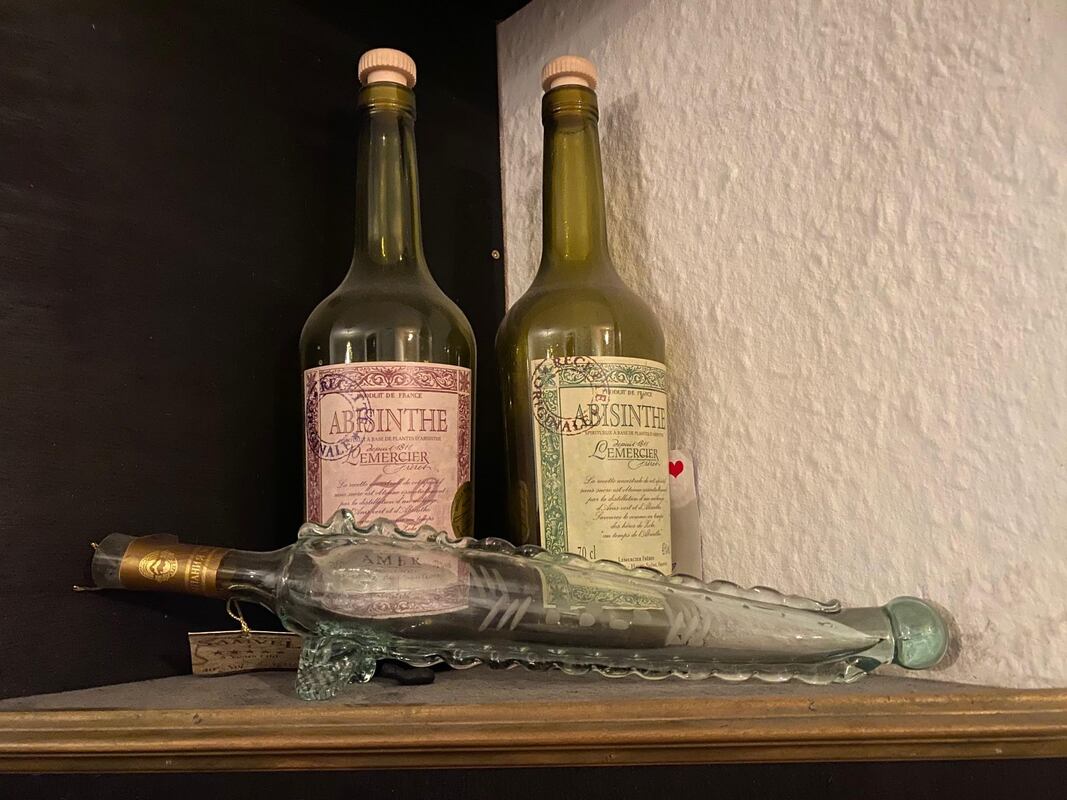
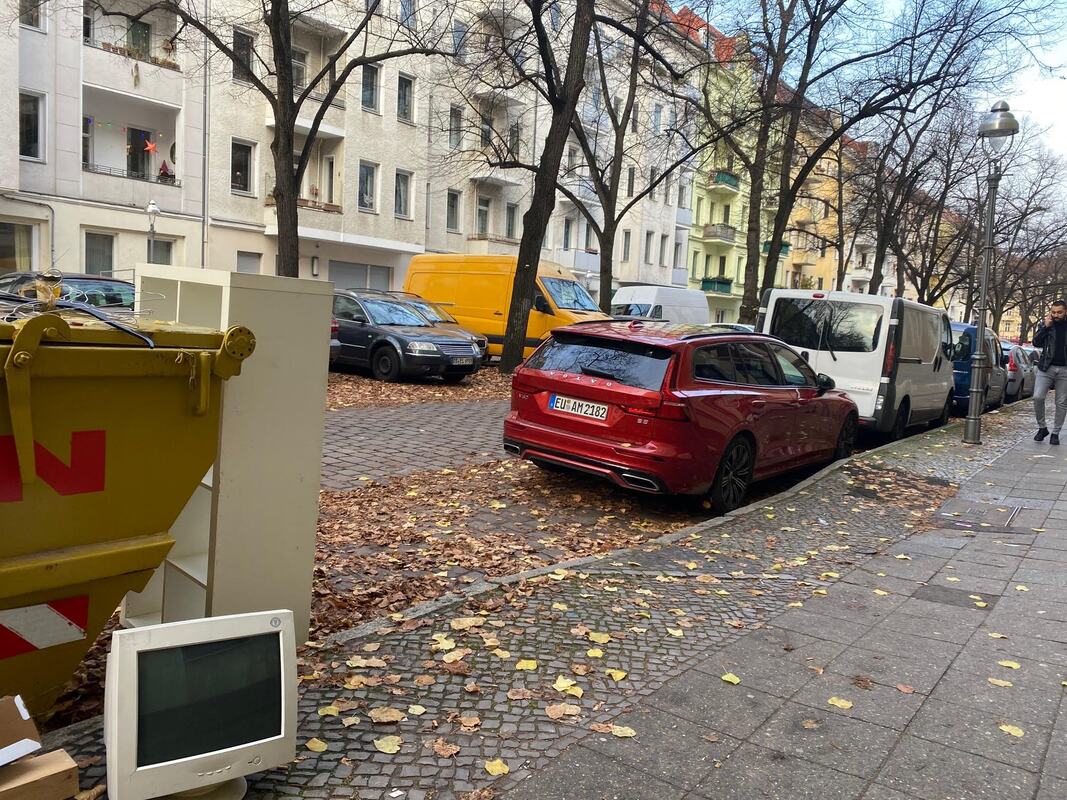
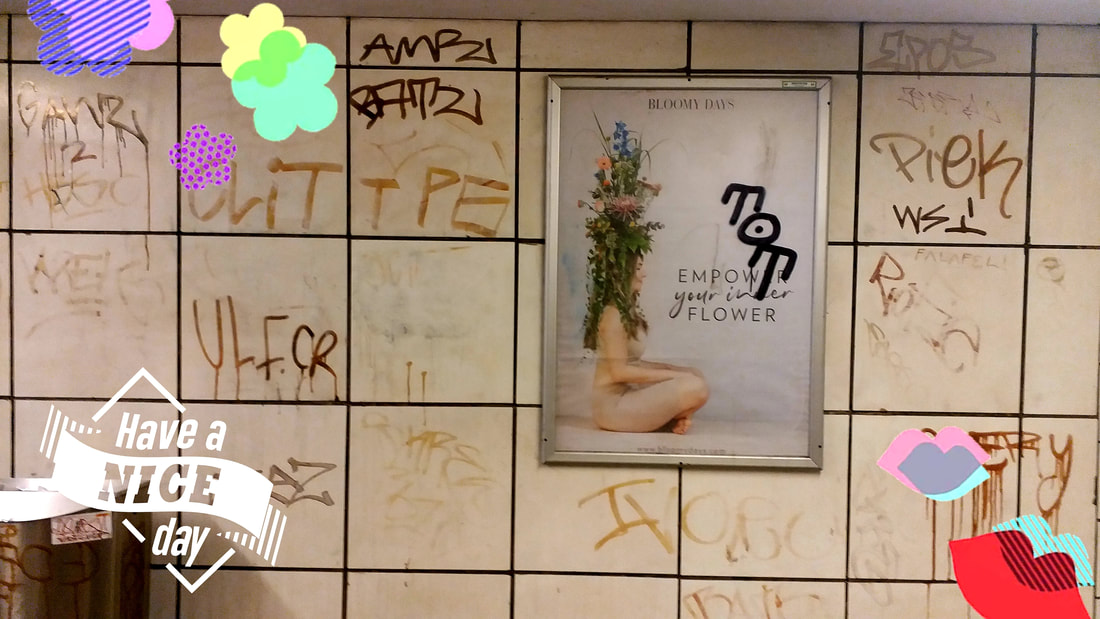
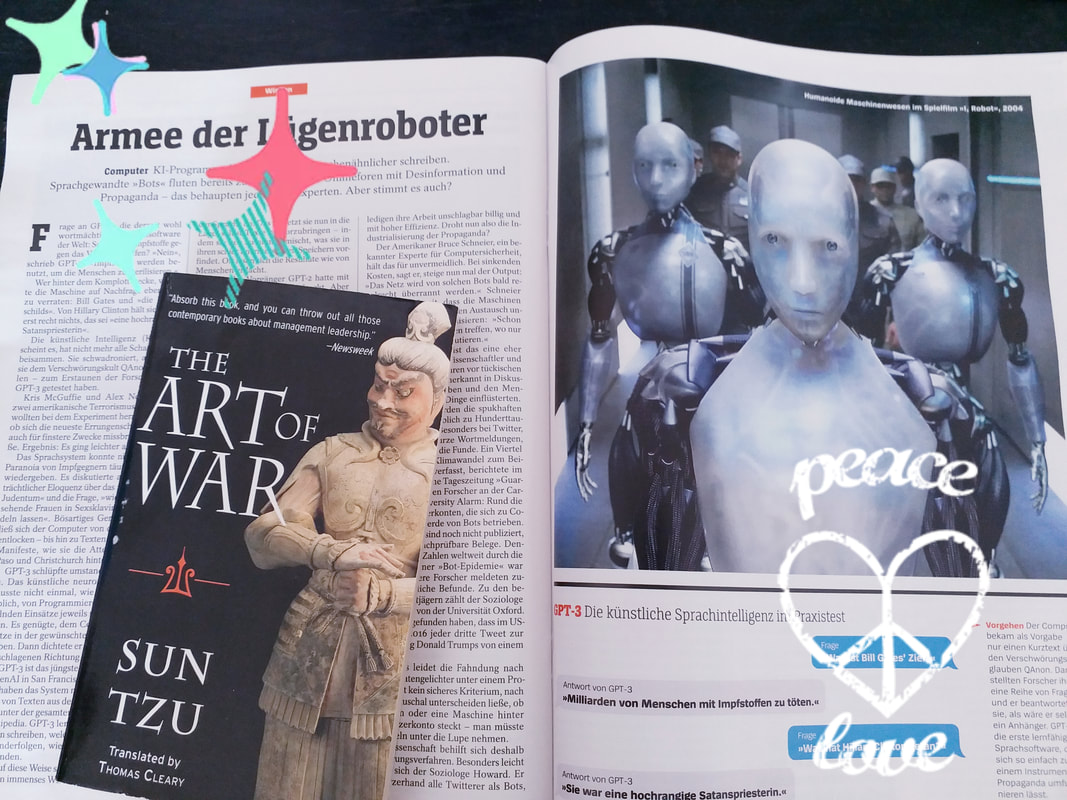
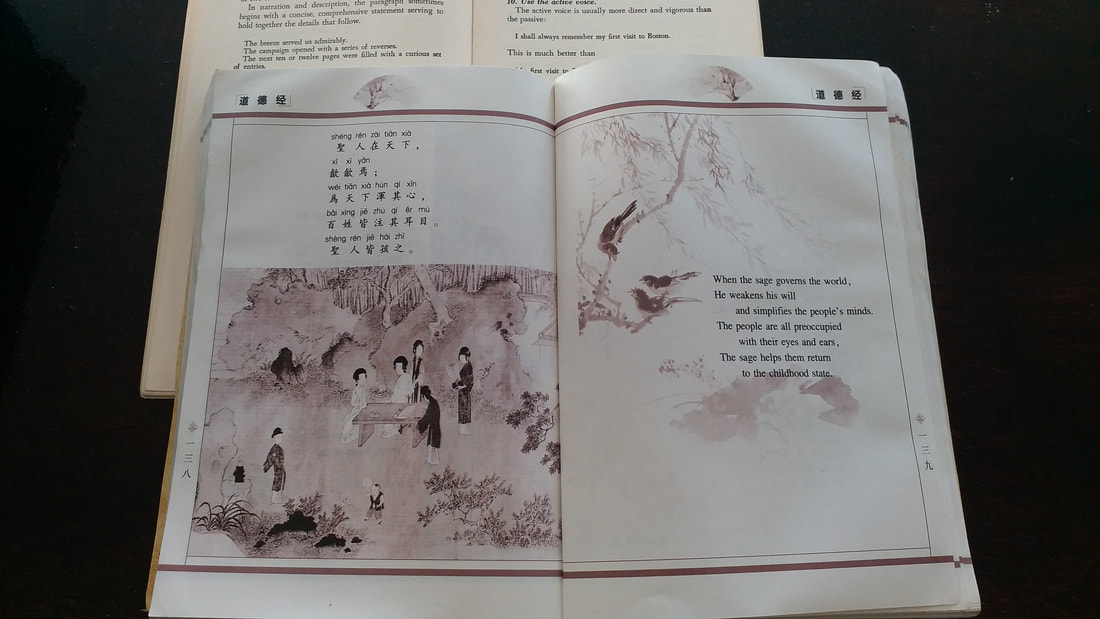
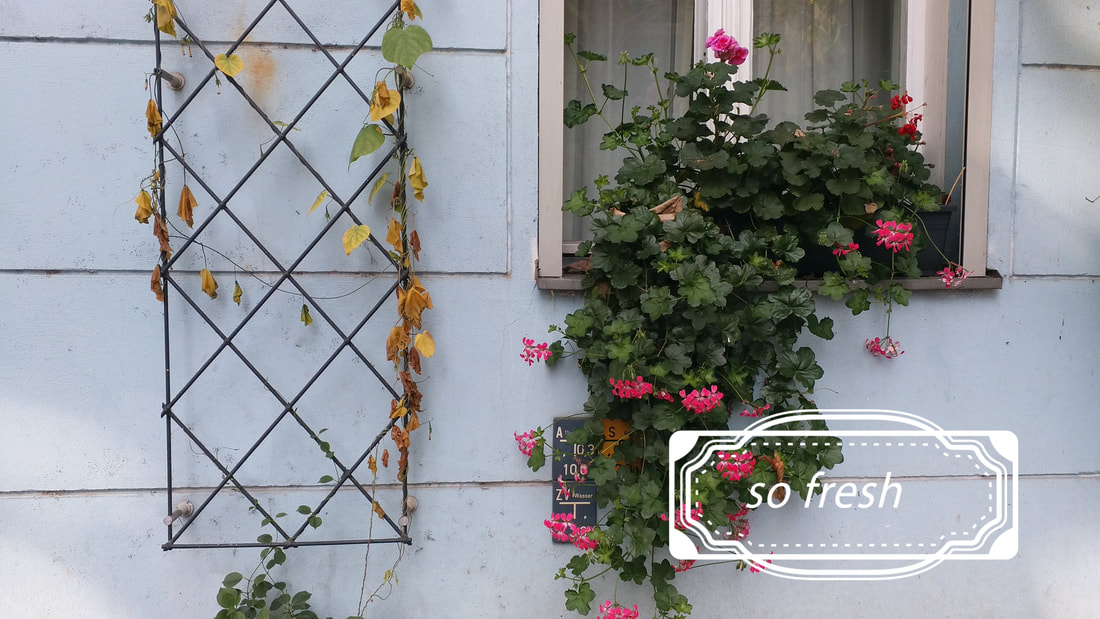
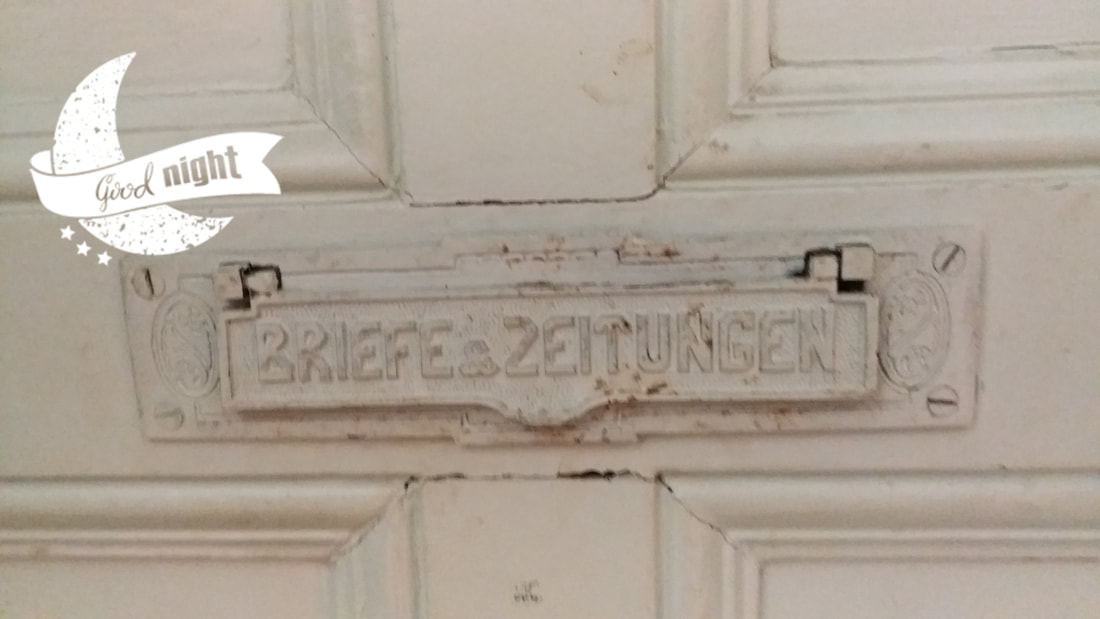
 RSS Feed
RSS Feed